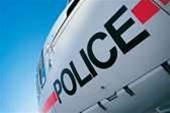
Eighty eight per cent of respondents said they are happy for CCTV to be used to reduce crime.
Eighty two percent said that CCTV should be used for tracking stolen cars, but only 58 percent were in favour of using CCTV to monitoring car tax evaders.
Even fewer, 54 percent, supported its use against speeding offenders. Only 30 percent supported its use in enforcing the Congestion Charge.
A gender gap is in evidence as more women than men are supportive of CCTV use on the roads. Eighty-two percent of women believed it should be used to help catch drunk drivers, compared with 74 percent of men.
Seventy six percent of respondents believed CCTV should be used to find missing people, while 70 percent were in favour of using it for crowd control.
Around 79 percent would employ CCTV to prevent shoplifting, and 70 percent to track drivers leaving petrol stations without paying.
Britain is one of the most-watched societies in the world with one CCTV camera for every 14 people in the UK. Britons are caught on camera at least once every five minutes.
North Lanarkshire Council was one of the first in the UK to implement CCTV over the internet (IP CCTV) to help combat anti-social behaviour.
"CCTV plays a significant role in ensuring the security and safety of citizens and has proven to be a very successful crime deterrent in our region," said Councillor Tom Maginnis, convener of the Economic Regeneration Committee at North Lanarkshire.
"We have one of the largest IP CCTV infrastructures in Europe and continuously look at new ways of using it for public welfare, whether to monitor big public events or prevent fly tipping."

_(23).jpg&h=140&w=231&c=1&s=0)








 iTnews Executive Retreat - Security Leaders Edition
iTnews Executive Retreat - Security Leaders Edition
 iTnews Cloud Covered Breakfast Summit
iTnews Cloud Covered Breakfast Summit
 The 2026 iAwards
The 2026 iAwards












_(1).jpg&h=140&w=231&c=1&s=0)



